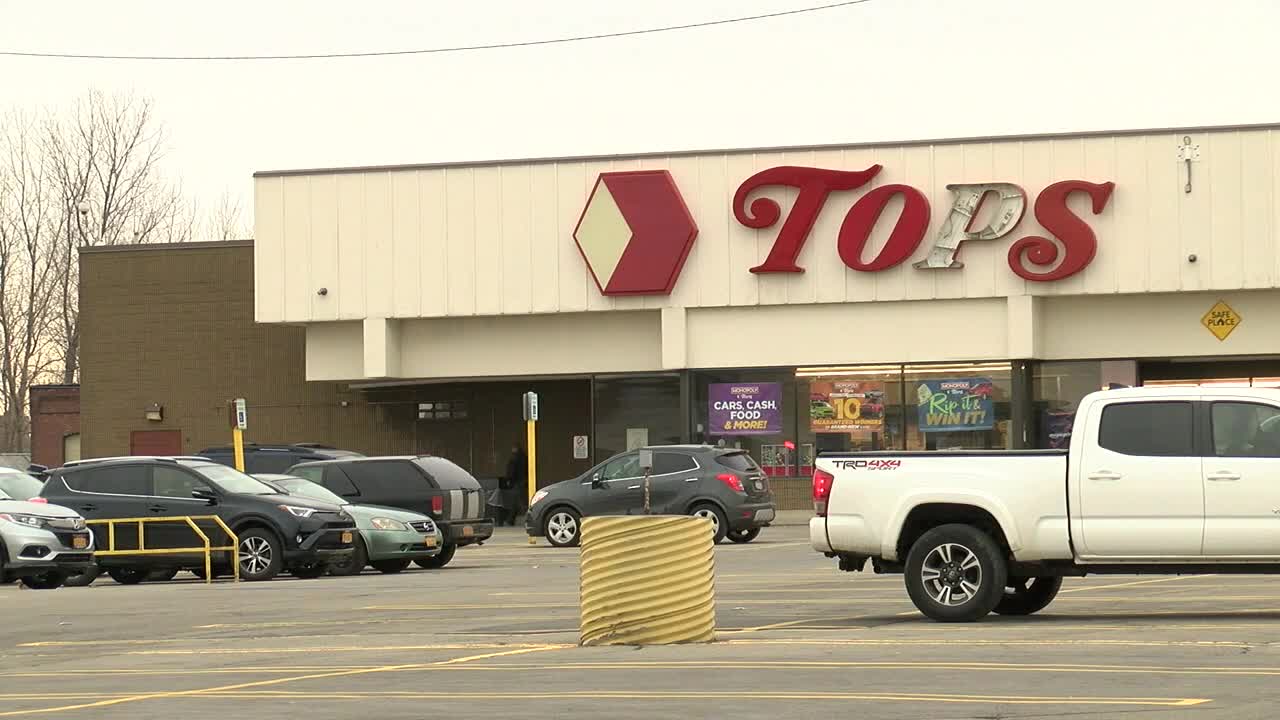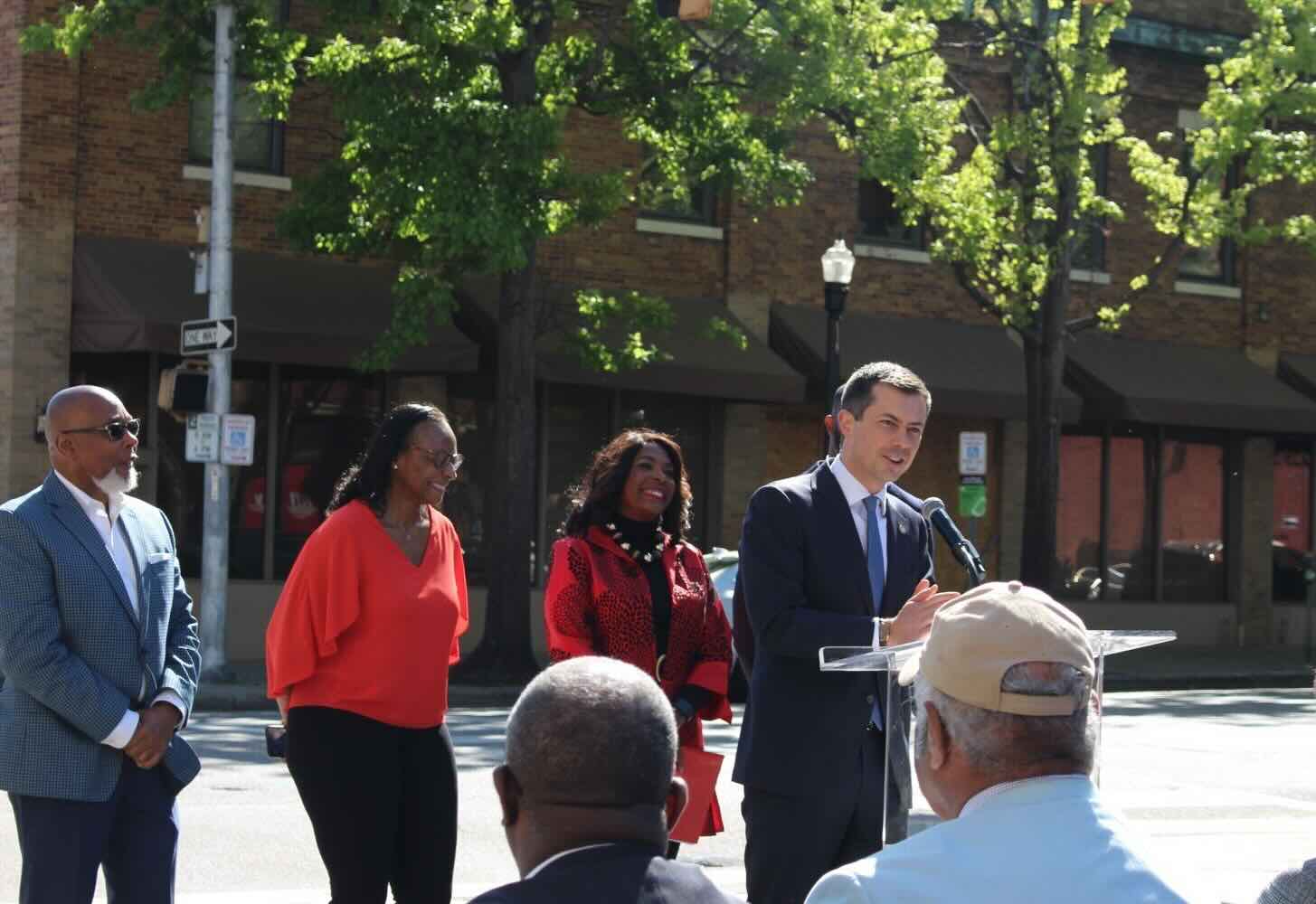ImpactAlpha, May 18 – The once-busy grocery store on Buffalo’s east side that was the scene of last weekend’s racist mass shooting for nearly 20 years had provided welcome access to fresh produce and affordable groceries for a majority Black neighborhood that had long lacked a local supermarket.
With Tops Friendly Market closed, at least temporarily, the Masten Park neighborhood is again a “food desert.”
Strategies for bringing supermarkets to urban neighborhoods without access to fresh food can have positive impacts on both health and community development. In many cases, groceries have been economic winners for retailers and investors as well, given high consumer demand and limited competition.
Food businesses have become essential anchor institutions in place-based investment strategies from Sola Impact in South Los Angeles, Access Ventures in Louisville’s Shelby Park neighborhood, Blueprint Local in the Manchester neighborhood of Richmond, Va., Mortar in Cincinnati, Erie Downtown Development Corp. in Pennsylvania and TPP Capital in Philadelphia’s Tioga neighborhood.
But such efforts have not gained the broad traction that many expected. In California, West Oakland’s Community Foods closed in February, less than three years after it opened to great fanfare as the neighborhood’s first full-service grocery store in 40 years. Owners blamed pandemic-related supply-chain issues, layoffs and shifts in shopping habits.
“Food access has been getting better in many regions, after a prior trend of decades of urban and Main Street withdrawal in favor of dense and new-growth suburbs,” Reinvestment Fund’s Don Hinkle-Brown told ImpactAlpha. “It is fair to ask if shootings like the one in Buffalo would have a negative effect on grocers’ growth and operating plans in the neighborhoods most in need.”
Loans from Reinvestment Fund, a community development financial institution, helped spur the expansion of Brown’s ShopRite supermarkets into Philadelphia food deserts, where the food chain found a $250 million market for quality food among 250,000 people in low-income neighborhoods.
Reinvestment Fund’s mapping of urban food deserts – and the potential buying power of surrounding neighborhoods – found that Buffalo ranks near the top of major metropolitan areas with “limited supermarket access,” and in racial disparity in such access. “A substantially greater share of people of color experience limited access to healthy food than white residents in the Buffalo region,” according to a 2018 report.
Community pillars
It took a decade-long push by local residents, along with public funding and incentives, to open the Tops Friendly Markets on Buffalo’s Jefferson Ave. in 2003. The supermarket, on the same corner where an A&P had stood in the 1960s, brought in more than 100 local jobs and became an anchor for additional community and business development projects.
“We were in a food desert, and I would like to say a food apartheid,” the Rev. Mark Blue, president of the Buffalo branch of NAACP, told NewsNation. “This is the only grocery store in a three- to five-mile radius.” He called the Tops market “a pillar in our community.”
Tops’ president, John Persons, said the company would provide free shuttle bus service to Tops’ Elmwood Ave. market.
The aftermath of the shooting in Buffalo highlights the opportunity and challenges in restocking the food supply in communities across the country.
In California, Freshworks 2.0 has deployed about $80 million since 2017 for healthy food businesses, including $75 million in loans and New Markets Tax Credits issued through a network of community development financial institutions.
An earlier Freshworks effort, initially launched in 2011 by The California Endowment and other public and private capital providers (and endorsed by Michelle Obama), raised $273 million in capital, but was only able to deploy $62 million through 71 loans and grants to grocery stores and other food businesses. The challenges included “a more competitive lending environment than originally anticipated, inflexible loan terms from FreshWorks’ structured loan fund, and limited capacity to invest in longer term efforts to bring healthy food to communities,” according to a 2021 evaluation.
The Michigan Good Food Fund, backed by a range of public and private capital providers and managed by Fair Food Network, has deployed $17 million in loans and grants to more than 300 Michigan-based food businesses, the majority owned by people of color.
Fair Food Network, through its Fair Food Fund, is providing catalytic capital and business assistance to local food ecosystems in Michigan, as well as in Camden, N.J. and other northeastern regions.
In New York state, Fair Fund Fund is supporting administration of the community-led Black Farmer Fund, which has so far raised $1 million in grants and debt to provide flexible capital for Black farmers, caterers, restaurant and food-truck owners, composters, herbalists and other land stewards.
The Reinvestment Fund is readying a new round of grants under the U.S. Department of Agriculture’s Healthy Food Financing Initiative, which it administers to support healthy food retail projects to overcome “the higher costs and initial barriers to entry in underserved areas.”











